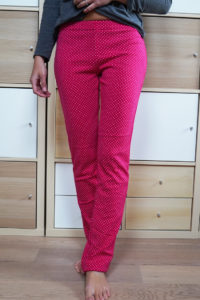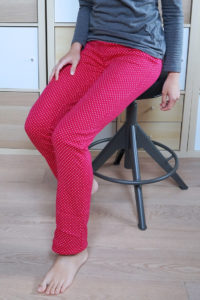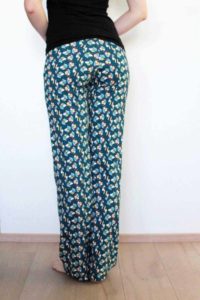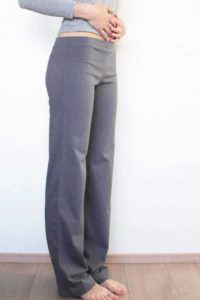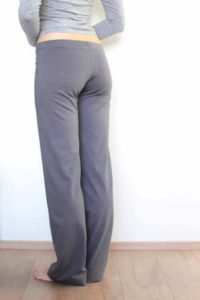Today I would like to show you a simple pattern for women’s sweatpants BASIC which is suitable even for absolute beginners. This pattern is very simple (no pockets, yokes, etc.). This fact makes sweatpants very comfortable and great for leisure, exercise, and sleeping. You can get children’s version of this pattern (sizes 80 - 164) here: Pattern for children’s sweatpants BASIC and men’s version (sizes 44 – 66) here: Pattern for men’s sweatpants BASIC. Sewing instructions with photos (and video tutorial) for sweatpants BASIC can be found below.

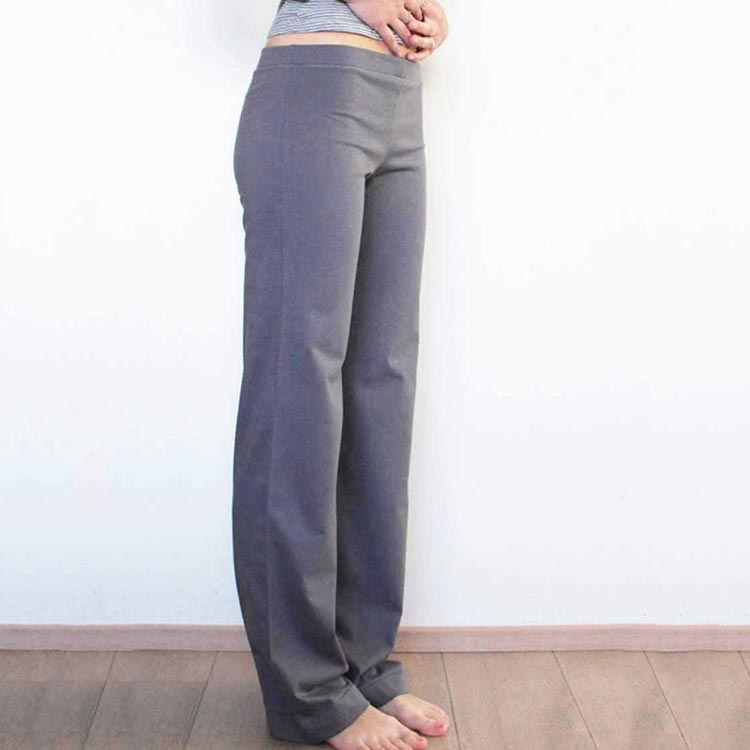
✄ The pattern for women's sweatpants BASICExplore the pattern
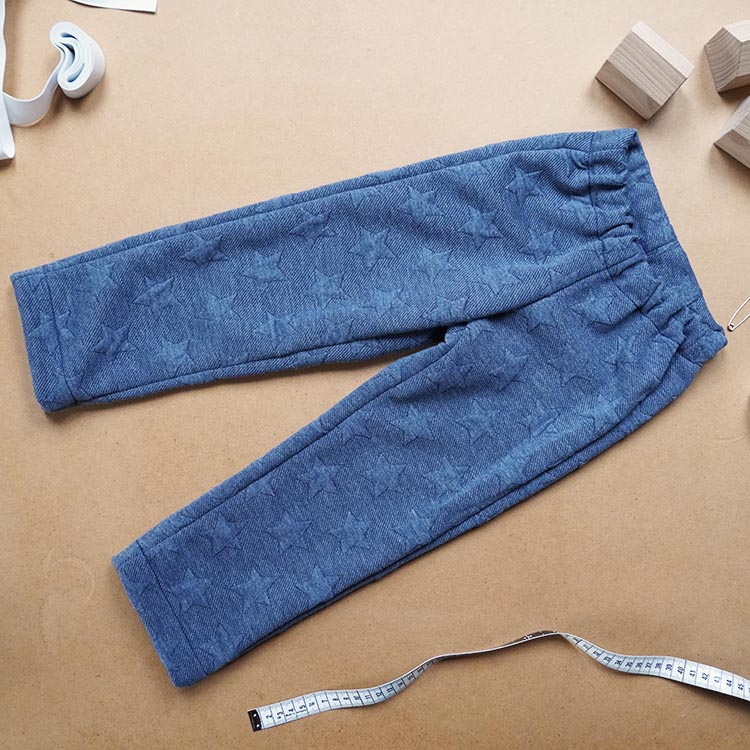
✄ The pattern for children's sweatpants BASICExplore the pattern
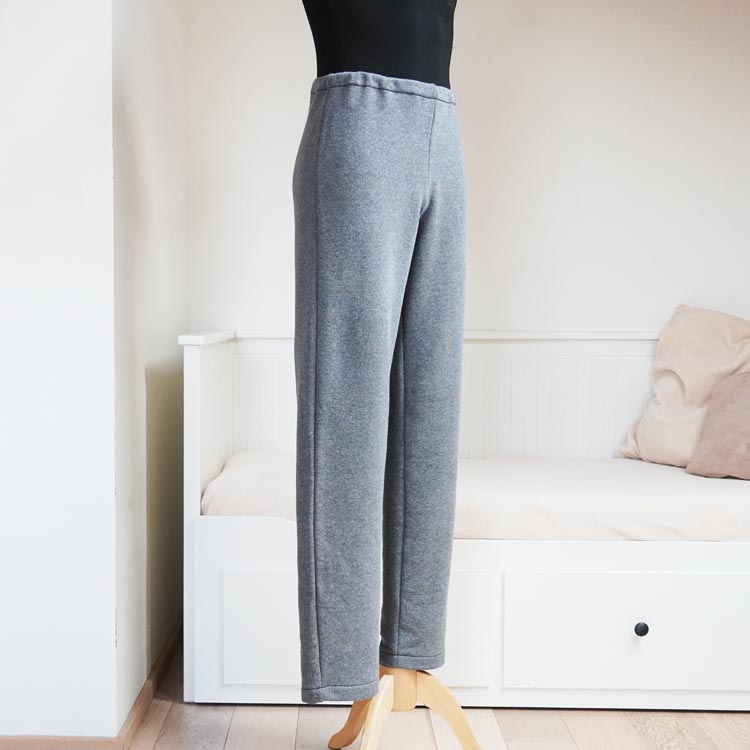
✄ The pattern for men's sweatpants BASIC EXPLORE THE PATTERN
You can sew with an overlock or a regular sewing machine. For more information on setting up a regular sewing machine for sewing elastic fabrics, see this article:
Sewing elastic fabrics on a regular sewing machine - 4 steps to success
This basic pattern is very simple, and you can use it to complete the wardrobe with essential pieces of clothing and use up the remains of fabrics from other sewing projects. I used some of my scraps to sew two-tone sweatpants and shorts (from smaller scraps) according to this pattern. If you want to sew shorts, just shorten the legs of the pants (back and front pieces) as needed.
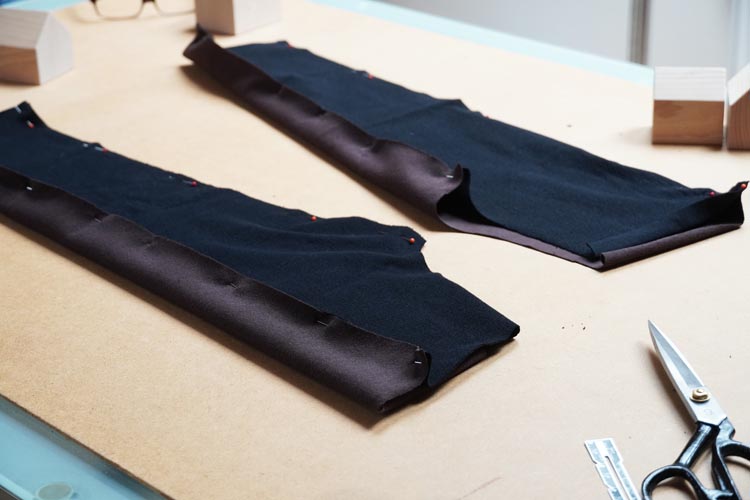
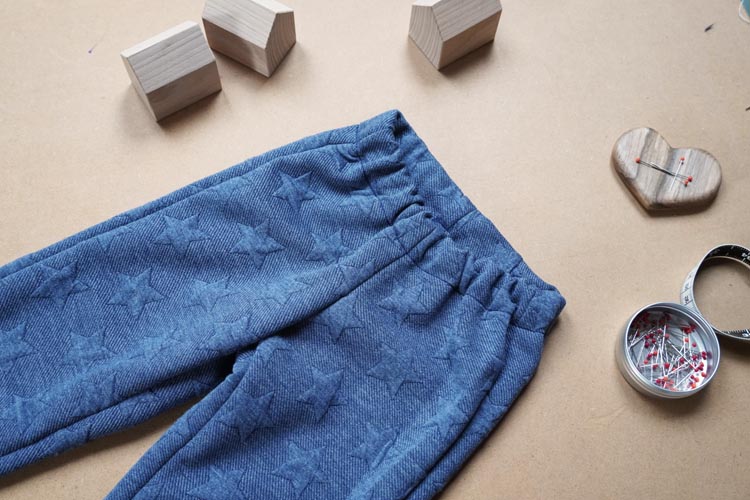
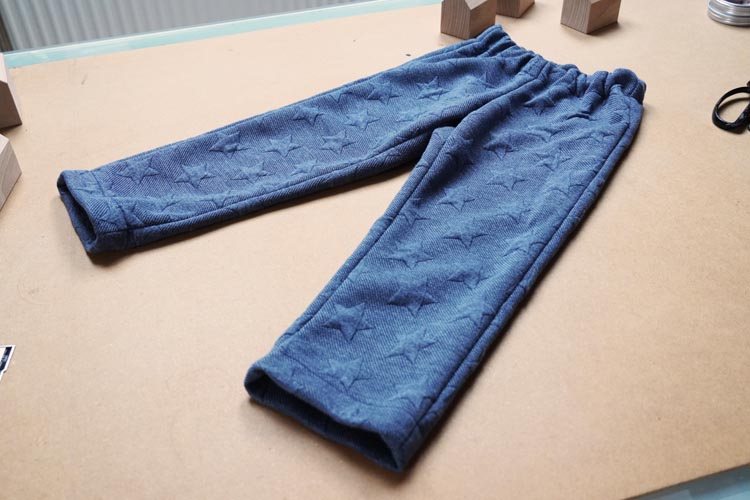
Recommended material:
We suggest using knit with the addition of elastane, thinner uncombed tracksuit fabric (also with the addition of elastane), sports knit, premium functional knit, etc. You will also need an elastic waistband with a width of about 2,5 cm.
Sewing process – step-by-step instructions for tracksuit sewing
Cuts preparation
Cuts preparation for this pattern is very simple. You need to prepare two back pieces and two front pieces. Make sure you are placing pieces precisely by the thread grain, otherwise legs of your tracksuit might start to twist after sewing.

Sewing:
Place back pieces face side up and overlay them with front pieces face side down, so you can start pinning the inseams.

There are notches near the thighs area of the inseam and side seam. They are there for connecting the back and front pieces. Cuts should overlay perfectly from notch down towards the end of the legs, but you need to stretch front pieces a little from notch up towards the waistline for perfect connection of inseams and side seams. The difference in length is small (only a few millimeters), but it is there. The sweatpants should fit you nicely thanks to this difference.
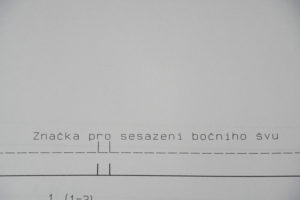
Sew pinned inseams together.
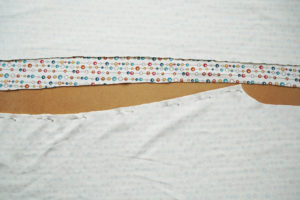
Always progress from the crotch seam down. Sew both legs.
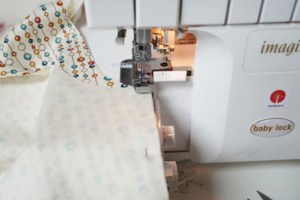
Inseams of both legs are done.
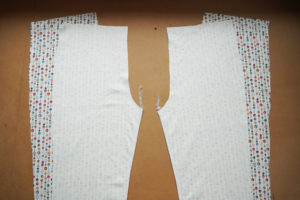
Let’s pin side seams now. Again - notches on the pattern will help you to connect pieces precisely.

Here you can see the difference in length of back and front pieces in the area of side seams.
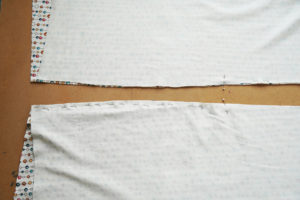
Here you can see a perfect overlay of pieces from notch down. This precise overlay stops the twisting of the legs.

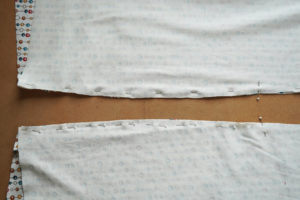
Sew the side seams, progress from the waist down. Turn one of the legs face side out.
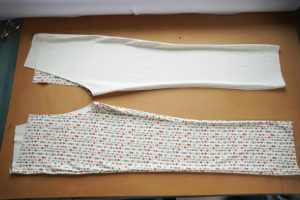
Insert the turned leg to the other leg so they are inside each other face side to face side. Pin the front and the back-crotch seams together.

Sew crotch seams. Make sure that the inseam allowances are spread out and overlaid.
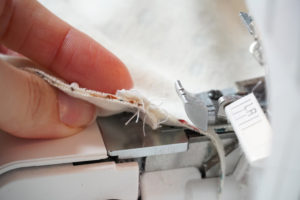
Clear the cutting edges of the legs and waist. Pull free ends of thread chains under the loops (when sewing on overlock)

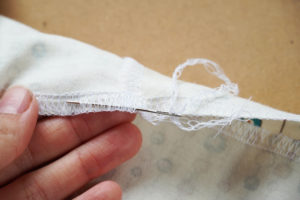
Fold the hem of the waist about 4 cm over the reverse side of the tracksuit and pin it down.
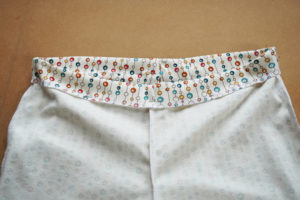
Leave about 4 cm wide opening near the seam of the back piece, this opening will not be sewn right away.
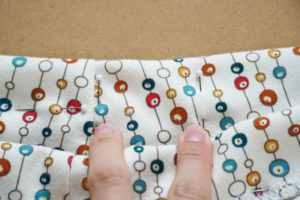
You can also roll the waist hem to reverse side like this instead of clearing it with overlock. You will end up with about 3 cm wide tunnel.
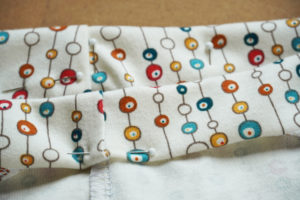
Fold the hems of legs about 3 cm into the reverse side too.
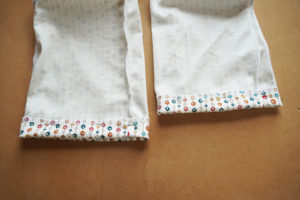
Sew waist and legs from the face side with a flexible seam. Do not sew the opening for the elastic waistband shut.
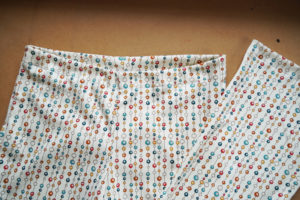
Insert elastic waistband through the opening. Determine the correct length of the waistband by wearing a sewn tracksuit and winding waistband around yourself. Stretch the waistband around your waist so it is neither loose nor too tight.
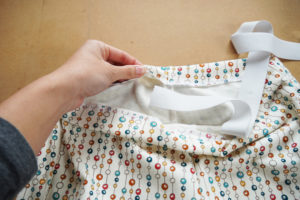

Sew strung elastic waistband flat. Avoid knots and complicated connecting seams – waistband connection needs to be as flat as possible for maximum comfort.
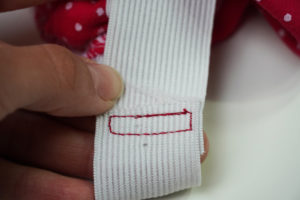
Sew the opening for the waistband shut.
If you need to shorten or lengthen the tracksuit, adjust the pattern in the marked knee area. Simply cut the pattern and slide the pieces apart (lengthening) or over each other (shortening).
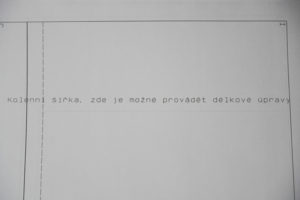
Your simple tracksuit is ready to be worn. Have a nice day, Peťa.
